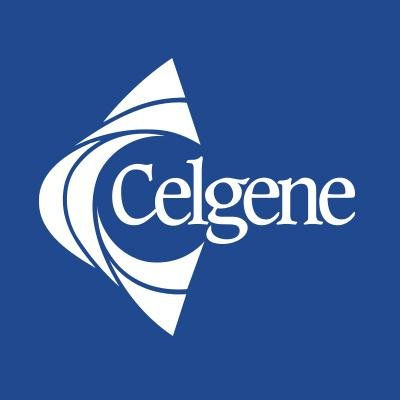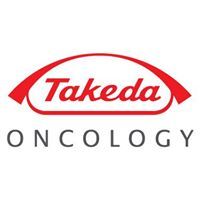Request Demo
Last update 08 May 2025
Ubiquitin ligase
Last update 08 May 2025
Basic Info
Synonyms E3 ubiquitin ligase |
Introduction- |
Related
107
Drugs associated with Ubiquitin ligaseTarget |
Mechanism CRBN modulators [+2] |
Originator Org. |
Active Indication |
Inactive Indication |
Drug Highest PhaseApproved |
First Approval Ctry. / Loc. United States |
First Approval Date08 Feb 2013 |
Mechanism CK1α inhibitors [+3] |
Active Org. |
Originator Org. |
Active Indication |
Inactive Indication |
Drug Highest PhaseApproved |
First Approval Ctry. / Loc. United States |
First Approval Date27 Dec 2005 |
Target |
Mechanism NAE inhibitors [+1] |
Active Org. |
Originator Org. |
Active Indication |
Inactive Indication |
Drug Highest PhasePhase 3 |
First Approval Ctry. / Loc.- |
First Approval Date20 Jan 1800 |
1,686
Clinical Trials associated with Ubiquitin ligaseNCT06461988
An Open-Label, Non-Randomized, Phase II Study to Study the Efficacy of Talquetamab (JNJ-64407564) and Lenalidomide as Post Stem Cell Transplant Maintenance in Multiple Myeloma (OPTIMMAL)
Multiple myeloma (MM) is a heterogenous plasma cell malignancy characterized by clonal proliferation of plasma cells and organ damage. Autologous transplantation with high dose chemotherapy is the standard of care in frontline treatment of eligible patients with MM.
Start Date01 Nov 2025 |
Sponsor / Collaborator  Stanford University Stanford University [+1] |
NCT06932562
A Randomized, Open-Label, Controlled Phase 3 Study of Comparing Daratumumab, Lenalidomide and Dexamethasone Induction Followed by Linvoseltamab Versus Continued Daratumumab, Lenalidomide, and Dexamethasone in Newly Diagnosed Transplant Ineligible Multiple Myeloma Patients
This study is researching an experimental drug called linvoseltamab. The study is focused on participants with newly diagnosed multiple myeloma (NDMM) who are ineligible for autologous stem cell transplantation (transplant-ineligible).
The main purpose of this study is to compare the effect and safety of linvoseltamab with the effect and safety of the standard treatment.
The main purpose of this study is to compare the effect and safety of linvoseltamab with the effect and safety of the standard treatment.
Start Date01 Sep 2025 |
Sponsor / Collaborator |
KCT0010365
Phase I study of pomalidomide-R-CHOP for patients with newly diagnosed diffuse large B-cell lymphoma who are at high risk of central nervous system relapse
Start Date01 Aug 2025 |
Sponsor / Collaborator |
100 Clinical Results associated with Ubiquitin ligase
Login to view more data
100 Translational Medicine associated with Ubiquitin ligase
Login to view more data
0 Patents (Medical) associated with Ubiquitin ligase
Login to view more data
22,490
Literatures (Medical) associated with Ubiquitin ligase31 Dec 2025·Pharmaceutical Biology
A novel strategy for the protective effect of ginsenoside Rg1 against ovarian reserve decline by the PINK1 pathway
Article
Author: Zhai, Lu ; Fan, Meiling ; Ma, Rui ; Wang, Yanping ; Yang, Dan ; Yang, Pengdi ; Zhang, Lili ; Fu, Baoyu ; Chen, Ying ; Sun, Liwei
31 Dec 2025·Cancer Biology & Therapy
PCK2
promotes invasion and epithelial-to-mesenchymal transition in triple-negative breast cancer by promoting TGF-β/SMAD3 signaling through inhibiting TRIM67-mediated SMAD3 ubiquitination
Article
Author: Fang, Wei-Yu ; Hung, Wen-Chun ; Jiang, Shih Sheng ; Chang, Tsung-Ming ; Hsu, Hui-Ping ; Huang, Kuo-Wei ; Chu, Pei-Yi ; Tsai, Hui-Jen ; Lin, Hui-You
31 Dec 2025·Future Science OA
Elevated expression of ANAPC1 in lung squamous cell carcinoma: clinical implications and mechanisms
Article
Author: Chi, Bang-Teng ; Wei, Yue ; Song, Chang ; Zhao, Chun-Yan ; He, Shu-Jia ; Lu, Hui-Ping ; Chen, Gang ; Kong, Jin-Liang ; He, Rong-Quan ; Huang, Wan-Ying ; Chen, Xiao-Song ; Chen, Yi-Yang ; Chen, Feng
153
News (Medical) associated with Ubiquitin ligase28 Apr 2025
-PLX-61639, a selective, oral SMARCA2 degrader, demonstrated sustained PD response and single-agent efficacy in SMARCA4 mutant tumors; program is advancing through IND-enabling studies-
-PLX-4545, a selective IKZF2 molecular glue degrader, completely degraded IKZF2 across a range of well-tolerated doses in Phase 1, resulting in a shift from Treg to an effector-like T cell phenotype-
-Preclinical data was presented on its CDK2 selective molecular glue degrader, which exhibited superior selectivity over inhibitor-based approaches; program is targeting CCNE1 amplified cancers-
SAN DIEGO, April 28, 2025 /PRNewswire/ -- Plexium, Inc. (Plexium), a leading next-generation targeted protein degradation company, announced today multiple presentations with the Company's selective monovalent degrader programs for SMARCA2, IKZF2 and CDK2 at the 2025 American Association for Cancer Research (AACR) Annual Meeting, taking place April 25-30, 2025, in Chicago, IL.
"These data highlight the clinical and preclinical progress we've made across our portfolio, including the use of a novel E3 ligase DCAF16, in our SMARCA2 program—an industry first that reinforces the differentiated potential of our monovalent degrader platform," said Jorge F. DiMartino, MD, PhD, Chief Medical Officer at Plexium. "We are also excited to share initial clinical data from PLX-4545, which demonstrated clinical proof of mechanism and intended pharmacological immunophenotypic effects."
Oral Presentation Details:
Title: "Discovery and characterization of novel, potent and selective CDK2 molecular glue degrader against CCNE1-amplified tumors"
Session: MS.ET09.01 – Degraders and Glues
Abstract Number: 6375
Date and Time: April 29, 2:55 PM – 3:10 PM
Presenting Author: Leenus Martin, PhD
Title: "PLX-4545, a selective IKZF2 degrader, reprograms suppressive Tregs leading to tumor growth inhibition and combination benefit with immune checkpoint therapy"
Session: MS.ET09.01 – Degraders and Glues
Abstract Number: 6380
Date and Time: April 29, 4:10 PM – 4:25 PM
Presenting Author: Peggy Thompson, PhD
Poster Presentation Highlights:
Title: "Mechanistic characterization of selective monovalent direct degraders of SMARCA2″
Session: PO.ET09.04 – Degraders and Glues 1
Abstract Number: 404
Section: 18
Date and Time: April 27, 2025, 2:00 PM – 5:00 PM
Presenting Author: Julia Toth, PhD
Plexium's SMARCA2 degraders function by bromodomain binding and covalent modification
A CRISPR knockout screen identified DCAF16 as being required for PLX-61639 mediated SMARCA2 degradation
MOA studies demonstrate PLX-61639-mediated SMARCA2:DCAF16 protein interactions and the requirement of covalent binding to a specific DCAF16 cysteine to support a stable ternary complex and subsequent SMARCA2 degradation
Title: "Preclinical characterization of PLX-61639, a potent and orally bioavailable SMARCA2-selective monovalent direct degrader"
Session: PO.ET09.10 – Degraders and Glues 2
Abstract Number: 1653
Section: 18
Date and Time: April 28, 2025, 9:00 AM – 12:00 PM
Presenting Author: Gregory Parker, PhD
Plexium has designed PLX-61639, a potent and selective direct degrader of SMARCA2, and nominated it as a development candidate
Daily oral dosing of PLX-61639 results in deep and sustained SMARCA2 degradation, eliciting robust tumor growth inhibition and regression in SM4mut CDX and PDX models, no tumor growth inhibition is observed in a control SM4wt CDX model
PLX-61639 is currently advancing through IND-enabling studies
Title: "A first in human trial of PLX-4545, a molecular glue degrader of IKZF2, in healthy volunteers, shows pharmacologic modulation of Tregs at well-tolerated doses"
Session Title: PO.CT01.02. First-in-Human Phase I Clinical Trials 2
Abstract Number: CT150
Section: 48
Date and Time: April 29, 2025, 9:00 AM – 12 PM
Presenting Author: Jorge DiMartino, MD, PhD
PLX-4545 an oral, CRBN molecular glue degrader of IKZF2, a lineage-defining transcription factor for Tregs was tested in healthy adult volunteers
With repeated daily dosing for 14 days, all dose levels achieved complete degradation of IKZF2 in PBMCs by Day 2 leading to conversion of Tregs into effector-like T cells and an increase in activated T effector cells
TEAEs were mostly Grade 1 or 2 (mild or moderate) in severity and no Dose Limiting Toxicities were encountered. All AEs were reversible with discontinuation of dosing
The AACR 2025 posters will be made available on the Plexium website.
About Plexium Inc.
Plexium is the premier, next-generation Targeted Protein Degradation (TPD) company seeking to discover a wide range of monovalent degraders that address the limitations of first-generation heterobifunctional degraders. The company is powered by its proprietary AI-integrated ultra-high-throughput phenotypic drug discovery platform technologies that have enabled the identification of novel small molecules that induce E3 ligase mediated selective degradation of target proteins. From molecular glues to direct degraders, Plexium is advancing a pipeline of novel monovalent targeted protein degraders for the treatment of cancer, neurodegeneration, and other diseases.
For more information, visit and engage with us on LinkedIn.
Plexium Investor and Media Contact:
Amy Conrad
Juniper Point
[email protected]
858-366-3243
SOURCE Plexium
WANT YOUR COMPANY'S NEWS FEATURED ON PRNEWSWIRE.COM?
440k+
Newsrooms &
Influencers
9k+
Digital Media
Outlets
270k+
Journalists
Opted In
GET STARTED
Phase 1Clinical ResultAACR
28 Apr 2025
HEFEI, China, April 28, 2025 /PRNewswire/ -- Kangpu Biopharmaceuticals, Ltd. announced today that the Center for Drug Evaluation (CDE) of China's National Medical Products Administration (NMPA) has approved Phase IIb clinical trial of KPG-818 capsule for the treatment of moderate to severe cutaneous manifestations of systemic lupus erythematosus (SLE).
About Cutaneous Manifestations of SLE
SLE is a complex, heterogeneous, inflammatory, chronic autoimmune disease in which the body's immune system attacks its own tissues, including skin, joints, and kidneys. Skin is the second most frequently affected organ system of SLE. The majority of SLE patients experience cutaneous manifestations over the course of the disease. Cutaneous manifestations of SLE carries a significant burden with regard to psychosocial well-being and medical costs.
Treatment options for cutaneous manifestations of SLE are limited, and current therapies (e.g., glucocorticoids, antimalarials, immunosuppressants) often lack efficacy or carry systemic side effects. There are tremendous unmet medical needs for novel therapeutics, especially an oral agent.
About KPG-818
KPG-818 is a novel oral molecular glue modulator of the E3 ubiquitin ligase complex CRL4-CRBN. It demonstrated high binding affinity to CRBN and potent degradation of zinc-finger transcription factors Aiolos (IKZF3) and Ikaros (IKZF1). KPG-818 effectively regulates immune cells (B cells, T cells, and pDC cells) and the release of multiple cytokines, possessing immunomodulatory, anti-angiogenic and anti-tumor effects. In the Phase IIa clinical study in SLE patients completed in the US, KPG-818 was well tolerated and demonstrated promising preliminary efficacy in SLE patients with cutaneous manifestations. KPG-818 was well tolerated in healthy subjects in a Phase I clinical study completed in China.
About Kangpu Biopharmaceuticals, Ltd.
Kangpu Biopharmaceuticals, Ltd. is a clinical-stage company focused on the discovery and development of innovative therapeutics for the treatment of solid tumors, hematologic malignancies, autoimmune diseases, and inflammatory disorders through novel solutions, including targeted protein degradation. Kangpu has developed a robust pipeline of potential first-in-class and best-in-class drug candidates based on proprietary technology platforms, including NeoMIDES®, gDACs®, and X-SYNERGY®.
For more information, please visit .
SOURCE Kangpu Biopharmaceuticals
WANT YOUR COMPANY'S NEWS FEATURED ON PRNEWSWIRE.COM?
440k+
Newsrooms &
Influencers
9k+
Digital Media
Outlets
270k+
Journalists
Opted In
GET STARTED
Clinical ResultPhase 1Phase 2
05 Apr 2025
– Data demonstrate that ARV-102 was well tolerated, orally bioavailable, and brain-penetrant; ARV-102 achieved central and peripheral LRRK2 reduction indicating substantial LRRK2 protein degradation in healthy volunteers –
– Findings support continued evaluation of ARV-102 in neurodegenerative diseases associated with LRRK2 dysfunction; a Phase 1 trial in patients with Parkinson’s disease has been initiated and is currently enrolling –
NEW HAVEN, CT, USA I April 04, 2025 I
Arvinas, Inc. (Nasdaq: ARVN), a clinical-stage biotechnology company working to develop a new class of drugs based on targeted protein degradation, today presented data from the first-in-human clinical trial of ARV-102, the Company’s investigational PROteolysis TArgeting Chimera (PROTAC) leucine-rich repeat kinase 2 (LRRK2) degrader. In the trial, ARV-102 demonstrated substantial reduction of LRRK2, a multifunctional protein that has been implicated in Parkinson’s disease (PD) and progressive supranuclear palsy (PSP), in cerebral spinal fluid (CSF), with a promising safety/tolerability profile and favorable pharmacodynamic outcomes. Results from the randomized, double-blind, placebo-controlled single ascending dose (SAD) cohort of the Phase 1 healthy volunteer trial, and initial results from the multiple ascending dose (MAD) cohort, were shared in a presentation at the 2025 International Conference on Alzheimer’s and Parkinson’s Diseases (AD/PD™ 2025) in Vienna, Austria.
The SAD cohort evaluated ARV-102 doses ranging from 10 mg to 200 mg. The MAD cohort evaluated doses ranging from 10 mg to 80 mg. Key findings from the trial showed:
ARV-102 is a novel investigational oral PROTAC designed to cross the blood-brain barrier and target LRRK2. While LRRK2 is primarily known for its role in PD, emerging evidence suggests that it also plays a role in tauopathies, including PSP, and that LRRK2 dysfunction may contribute to the development and progression of both diseases.
“The ability of ARV-102 to cross the blood-brain barrier and degrade the LRRK2 protein offers a potentially transformative therapeutic approach in the treatment of devastating neurodegenerative diseases,” said Noah Berkowitz, M.D., Ph.D., Chief Medical Officer at Arvinas. “We believe these results support continuing our ARV-102 clinical program and building upon our body of evidence for this lead PROTAC degrader candidate in our neuroscience pipeline.”
Data presented at AD/PD™ 2025
The ARV-102 Phase 1 study is designed to assess the safety, pharmacokinetics, and pharmacodynamics of orally administered ARV-102 in healthy male volunteers. This is a single-center, randomized, double-blind, placebo-controlled trial evaluating outcomes in both SAD and MAD cohorts. In the SAD cohort, volunteers were randomized 3:1 to either placebo or a single dose of ARV-102 (10 mg, 30 mg, 60 mg, 90 mg, 150 mg, or 200 mg) on day 1 with follow-up until day 10. In the MAD cohort, volunteers were randomized to either placebo or a once daily dose of ARV-102 (10 mg, 20 mg, 40 mg, or 80 mg) for 14 days with follow-up until day 28.
Safety Profile
ARV-102 Exposure in Plasma and CSF
Pharmacodynamic Evaluation
Arvinas believes these results support continued investigation of ARV-102 in neurodegenerative diseases associated with LRRK2 and lysosome dysfunction.
Additional detail on the ARV-102 data presentation at AD/PD 2025 follows below:
Session Title:
First-In-Human Study to Assess the Safety, Pharmacokinetics, and Pharmacodynamics of ARV-102, a PROTAC LRRK2 Degrader, in Healthy Males (ID:1963)
Session Type:
Symposium: LRRK2, Alpha-Synuclein, Parkin: Diagnosis and Therapeutic Targets (ID:83)
Date:
Friday, April 4, 2025
Lecture Time:
3:20 p.m. – 3:35 p.m. CET
About ARV-102
ARV-102 is an oral, brain-penetrant investigational PROTAC designed to degrade leucine-rich repeat kinase 2 (LRRK2), which is a large, multidomain scaffolding kinase. Increased activity and expression of LRRK2 have been implicated in the pathogenesis of neurological diseases, including LRRK2 genetic and idiopathic Parkinson’s disease and progressive supranuclear palsy.
About Arvinas
Arvinas (Nasdaq: ARVN) is a clinical-stage biotechnology company dedicated to improving the lives of patients suffering from debilitating and life-threatening diseases. Through its PROTAC (PROteolysis TArgeting Chimera) protein degrader platform, the Company is pioneering the development of protein degradation therapies designed to harness the body’s natural protein disposal system to selectively and efficiently degrade and remove disease-causing proteins. Arvinas is currently progressing multiple investigational drugs through clinical development programs, including vepdegestrant, targeting the estrogen receptor for patients with locally advanced or metastatic ER+/HER2- breast cancer; ARV-393, targeting BCL6 for relapsed/refractory non-Hodgkin Lymphoma; and ARV-102, targeting LRRK2 for neurodegenerative disorders. Arvinas is headquartered in New Haven, Connecticut. For more information about Arvinas, visit
www.arvinas.com
and connect on
LinkedIn
and
X
.
SOURCE:
Arvinas
Phase 1Clinical ResultPROTACs
Analysis
Perform a panoramic analysis of this field.
login
or

AI Agents Built for Biopharma Breakthroughs
Accelerate discovery. Empower decisions. Transform outcomes.
Get started for free today!
Accelerate Strategic R&D decision making with Synapse, PatSnap’s AI-powered Connected Innovation Intelligence Platform Built for Life Sciences Professionals.
Start your data trial now!
Synapse data is also accessible to external entities via APIs or data packages. Empower better decisions with the latest in pharmaceutical intelligence.
Bio
Bio Sequences Search & Analysis
Sign up for free
Chemical
Chemical Structures Search & Analysis
Sign up for free





